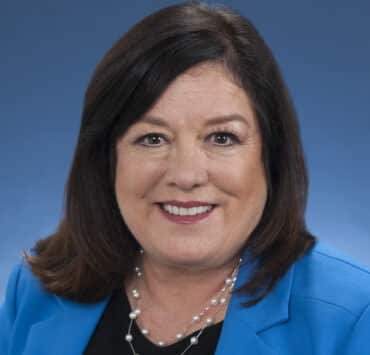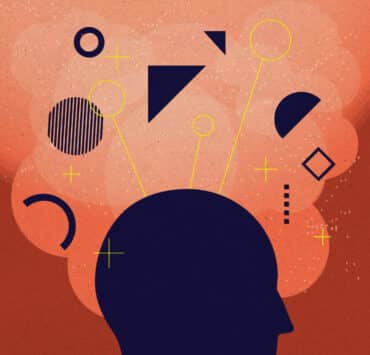Sara Gonzales-Erhan’s unique journey to her current role as the legal director for customer
trust, products, and operations at cloud computing company Nutanix Inc. has made her an impactful leader not just in law but in diversity, equity, and inclusion (DEI) efforts. Gonzales-Erhan is particularly dedicated to supporting neurodivergent individuals, and has even founded a corporate DEI affinity group for people connected to that community.
In all of these efforts, Gonzales-Erhan has been inspired by her son, who is neurodivergent and would directly benefit from similar efforts. The lawyer’s powerful connection to individuals whose lives may not fit a traditional narrative has made her an empathetic and compassionate leader whose impact is felt far beyond her day job.
Gonzales-Erhan was kind enough to sit down with Hispanic Executive to discuss her journey, her son’s unique circumstances, and the need for advocacy for those who often struggle to be heard.
Could you talk a little bit about your career trajectory and some of the impactful experiences that have helped inform your leadership?
A huge influence as a young child was having parents who felt it was extremely important not only to be inclusive but to acknowledge and accept differences. When we think about unconscious bias, often we think of the negative, but I truly believe that my parent’s influence and focus on this led me to become more “person focused” rather than just appreciating specific skills and attributes (or immediately noticing differing abilities in these).
My parents had the wisdom and foresight to send me to a summer camp for a few years that was for both “regularly” abled and “dis” abled children. We participated in the same activities, but I was also given the opportunity to witness the everyday challenges faced by the disabled children in my group.
If you’ve never had to navigate it for yourself, you simply never think about how you are going to guide a wheelchair down a steep hill or what it requires to use a public restroom when you have mobility, visual, or developmental impairments. Seeing this part of the human experience up close was hugely impactful on my interactions toward other people generally.
It wasn’t until law school that I realized that there was potential for me to have influence in this area professionally. I took a part-time job at a law firm and one of the founding partners, who had been mobility-challenged himself, was one of the nation’s first vocal disability lawyers: he won cases to support inclusion of people in wheelchairs or who were blind/deaf on juries as well as cases that guaranteed equal access to public buildings and transportation, and generally championed a level playing field for the disabled. Unfortunately, he passed away a couple years before I worked there, but his passion and dedication to this cause was still evident in the firm and it definitely steered me into more of a public interest bent.
Fast-forward twenty years, and I’ve been faced with raising my own child with developmental disability and mental illness. Without these early experiences, I think I would have been overwhelmed or paralyzed or both. Instead (much to my own surprise), I was able to approach it with pragmatism. My attitude was, “Take each day, hour, minute at a time and solve for the task at hand.” But it also helped me realize the incredible impact of awareness and advocacy.
I’d love you to talk more about neurodiversity and the importance of changing the way this has been thought of as a “disability.”
Neurodiversity is just a difference in the way the brain is wired. I think we have traditionally labeled it as a disability because it has had, in many cases, a profound impact on daily living or employment, but just like any other aspect of diversity, it’s really just a different set of attributes that someone possesses. Like someone who is highly creative and artistic versus someone who is more analytical and process oriented.
How has this mindset informed your broader mission of awareness, acceptance, and accessibility?
I’m very lucky to be at a company that supports and celebrates diversity—so much so that I was asked to found a DEI alliance group around disability, neurodiversity, and mental illness.
Having an adult son who will most likely need strong support from his broader community as he journeys through life has motivated me to continue to push for awareness wherever I can. I couldn’t think of a better “added bonus” to my career if I can also do this on behalf of other parents and caregivers in the context of my profession and through the support of the companies I choose to work for.
How else have you seen this commitment to DEI play out at Nutanix? What makes the company the right fit for you?
I’ve found a community at Nutanix that has really rallied around the idea of my broader mission. In my role as a legal director and product counsel for Nutanix, I’ve found so many people I work with in my “day job” who are also touched by neurodiversity, mental illness, or “disability” in their own daily lives. I think it truly helps build a strong company culture and a sense of community when you know that your colleagues also share similar personal challenges (and successes) and are empathetic to each other’s journey.
Nutanix also fosters a number of initiatives in support of DEI generally. One example: the employee-led “Nutanix LIFE Groups,” which aim to connect our employees through common life experiences and backgrounds. This program is particularly important to me as the founder and leader of the “People First Alliance,” the LIFE Group which promotes (internally and externally) a person-first approach for people impacted by neurodiversity, disability, and mental illness. Leading this group has afforded me an amazing benefit—learning about and participating in the personal journeys of our employees who also have connections to these communities.
But it’s not just the employees at Nutanix. We also have partners, customers, and vendors with whom I have made long-term business and personal connections because of our shared experience with supporting or caring for people in our lives who are impacted by disability or neurodiversity.
I truly believe that it’s all of these connections that do so much more than what one big impactful volunteer event or donation drive could do to support this community. These individual connections, made and sustained over time, are what cascades out and organically grows efforts to expand awareness, acceptance, and inclusion. And Nutanix has provided me with an amazing forum to help facilitate this growth.

